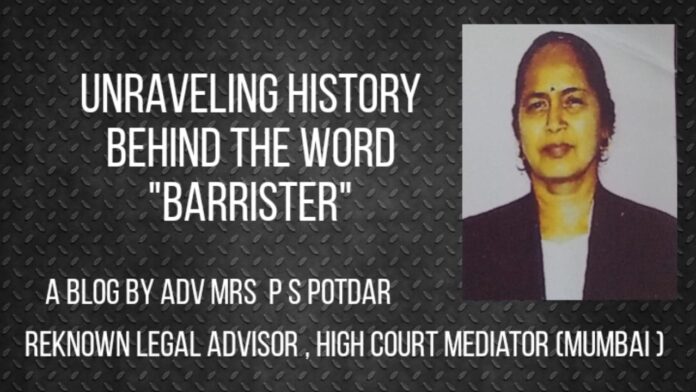Introduction:
Welcome to the fascinating world of law, where we unravel the captivating history behind the term “barrister.” As we delve into the origins and evolution of this distinguished title, we embark on a journey through time, exploring the etymology and significance of the word in legal practice. Join me as we unveil the intriguing story behind the barra, a physical barrier that played a crucial role in shaping the term. Throughout history, barristers have held a unique position, and as a legal advisor and high court mediator at the Mumbai High Court, I bring my expertise to shed light on the enduring legacy of “barrister” in the legal realm. So, let’s dive in and uncover the rich history that lies behind this intriguing word.
Etymology and Origins:
The word “barrister” finds its roots in the Latin term “barra,” meaning a barrier or a rail. This reference to a physical separation serves as a starting point for understanding the historical context in which the term emerged.
Medieval England and the Inns of Court:
During the medieval period in England, legal proceedings took place in open areas known as “Inns of Court.” Aspiring lawyers, or students, gathered in these spaces to study and observe court proceedings. To differentiate themselves from the general public and other legal practitioners, these students would position themselves within a designated area behind a physical barrier or barra.
The Evolution of the Term:
Over time, the term “barrister” became associated with those students who had completed their legal education and were qualified to plead cases in court. As a result, it came to represent a specific branch of the legal profession, distinct from solicitors and other legal roles.
Formalization of the Title:
In the 16th century, the Inns of Court began establishing rules and regulations governing legal practice, including the admission of individuals to the bar. The title of “barrister” became an official designation for those who had completed their training, passed the necessary examinations, and were called to the bar, granting them the right to represent clients in court.
Continuity and Modern Usage:
The use of the word “barrister” has persisted through the centuries and remains a key term in legal practice in countries following the common law system. Barristers, recognized as specialist advocates, continue to play a vital role in courtroom proceedings, presenting cases and legal arguments before judges and juries.
Conclusion:
The history behind the word “barrister” unveils a captivating journey through legal traditions and the evolution of the legal profession. From its origins in medieval England to its modern-day significance, the term symbolizes the specialization and expertise of those qualified to represent clients in court.

















